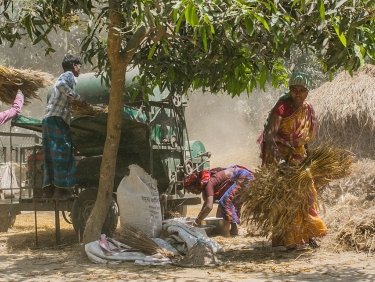

Development of rural communities
HEKS/EPER strengthens civil society communities and promotes peaceful coexistence among them, supports them in gaining access to land and natural resources and helps them build up sustainable agricultural production and suitable markets. HEKS/EPER also strives to ensure that rural communities and their members enjoy equal rights and a secure livelihood.
Access to land and resources
Although small farms produce up to 80% of the food in developing countries, 75% of the malnourished are rural dwellers. Access to land and other natural resources like water, seed, forests or minerals spells survival for them. Yet access to land means not only food security and economic autonomy but also homeland and cultural identity. HEKS/EPER defends land rights for local rural dwellers and helps them resolve land conflicts amicably. Smallholders get help in managing their land productively, sustainably and profitably.
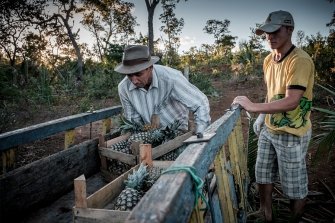
Basic services for all
Education, healthcare, social welfare and infrastructure such as electricity, water, waste disposal or roadways are among the services a State should provide for its citizens – affordably and of good enough quality. Regrettably this is hardly so in countries where HEKS/EPER operates. Minorities, the elderly and disabled or remote communities face great difficulty. HEKS/EPER supports the disadvantaged in accessing basic services, and fosters dialogue between people and authorities.
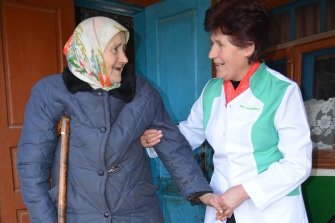
Agriculture and market
HEKS/EPER operates mainly in rural areas where prosperity and quality of life for the poorest are closely tied to successful farming. Profitable farming is often hampered by depleted soil, poor transport routes or lack of knowhow. HEKS/EPER helps people farm profitably and ecologically by fomenting sustainable techniques and high product diversity, in anticipation of environmental risks and market changes. To ensure successful marketing, HEKS/EPER builds smallholders' knowledge of markets and strives for market systems where smallholders can survive and prosper. For this, HEKS/EPER mediates between producing, processing and subcontracting enterprises.
Thematic factsheet on Sustainable Food and Agriculture Systems
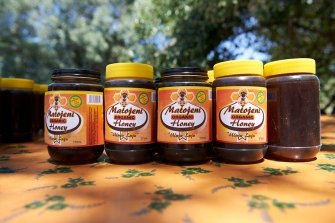
Income and employment
Farming and small businesses are the basis of employment and income in rural areas. HEKS/EPER specifically promotes products and businesses beneficial to the local people. This requires good professional training and the acumen to run businesses successfully or to survive on the open job market. HEKS/EPER therefore works with authorities, business people and private sector to organize basic and advanced training. HEKS/EPER also promotes fair working conditions and wages.
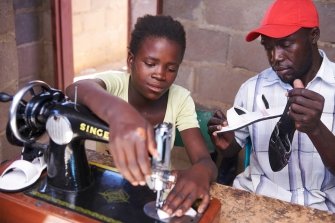
Security and rights
Economic and social development is sustainable only when people can participate freely and actively. But civil and human rights are threatened in many places. People's scope for action is being drastically curtailed. People defending their rights and those of others face discrimination and risk their own lives. HEKS/EPER therefore empowers, networks and protects people and grassroots organizations that peacefully defend participation and rights. HEKS/EPER informs local people about their rights and encourages dialogue between population, government and business sector at local, national and international levels.
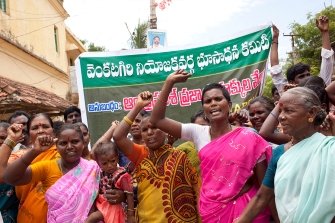
Good governance
A properly functioning State is transparent and accountable. It ensures legal certainty, peace, human rights and participation and creates economic and social conditions that ensure citizen well-being. HEKS/EPER and its partner organizations strive to ensure that civil society is involved in economic and political processes – more specifically minorities and other communities on the fringes of society, as good governance fosters inclusion, stability and sustainability.
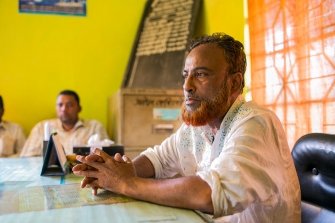
Inclusion
Discrimination harms not just the victims – but the whole society. Social or economic exclusion affects minorities, the disabled, the elderly, rural communities, young people and often women as well. Discrimination causes poverty and conflict. HEKS/EPER helps the disadvantaged claim their right to education participation and an income. In this, HEKS/EPER works not only with minorities but also the mainstream population and fosters dialogue among all stakeholders, as the community is strengthened by broadly supported solutions.

Peace-building
Peace and stability are prerequisites for progress and prosperity. HEKS/EPER begins its peace work in everyday life. If conflicting parties can be shown common values, interests and prospects, the result is better mutual understanding, recognition, respect and cohesion. HEKS/EPER empowers individuals and groups that are committed to peaceful coexistence through youth camps, peace networks, advocacy, media work and exchange programmes.
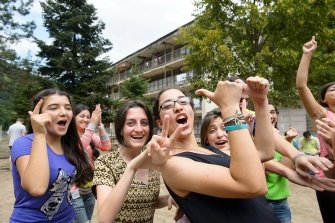
Disasters, climate, environment
Natural disasters and environmental pollution are rising worldwide. Ever more people live in places regularly hit by storms, floods, droughts and earthquakes. Over-exploitation of farmland, waters or forests is leading to «permanent disasters» such as water shortage, desertification or erosion. Climate change, the plunder of natural resources, economic crises and armed conflicts are exacerbating poverty and hampering progress in poor and rural regions. To secure livelihoods long term, HEKS/EPER formulates strategies jointly with local populations so as to minimize risks and enhance resilience.
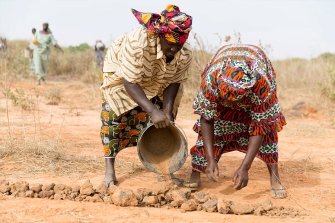
Gender equality
Women comprise 70 per cent of the world's poor and are also more subject to discrimination and violence in everyday life. They are also more often the victims of war and natural disasters. Women have less of a voice and less access to land, credit, education and healthcare. Yet women are the bedrock of the family, society and economy. They work in households, in agriculture or in small businesses, often without pay. HEKS/EPER opts to work with men and women in its projects so as to tackle these injustices. In so doing it is also vital to question male role models. Breaking up unfair power distribution will benefit not just women but society as a whole. Gender equality is crucial if everyone in poorer countries is to benefit from sustainable development.

